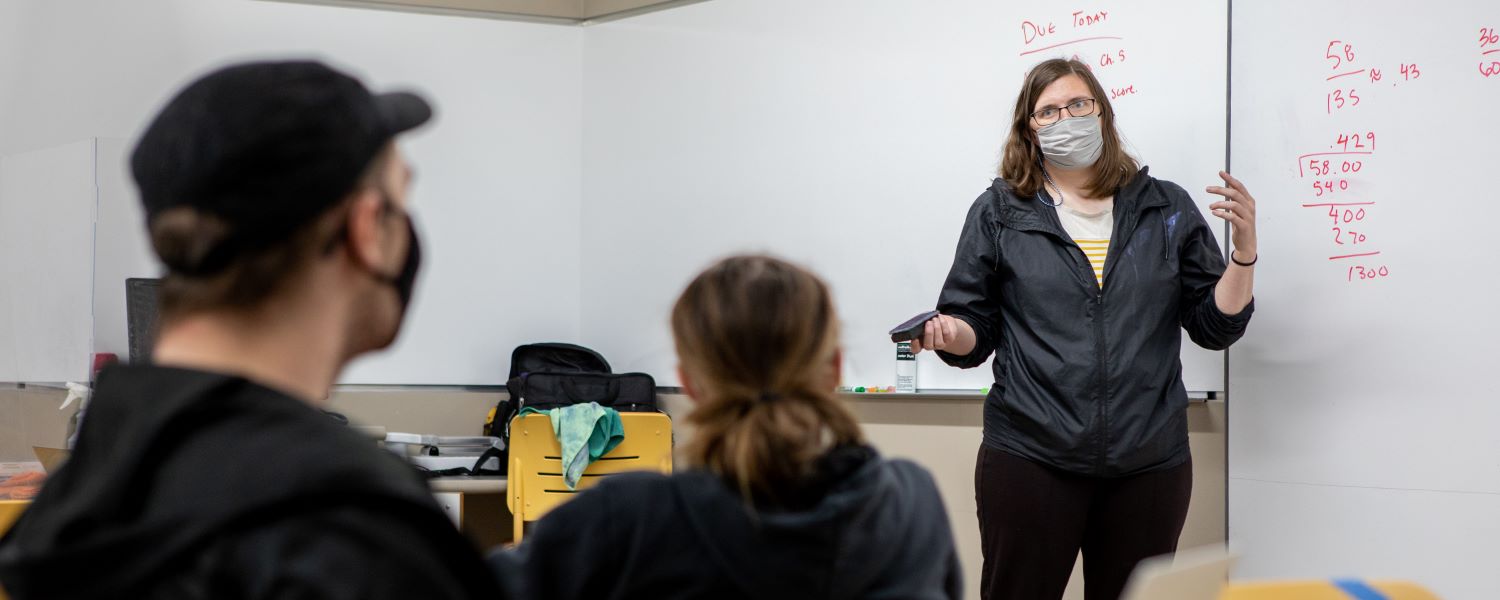Class is in Session… What’s Next?

“Help! I’m in class and I don’t know what to do!”
Even the most enthusiastic learners can find themselves thinking this and end up just sitting through the class. It’s easy to blame many things: the lecture style that’s too fast (or too slow), content that’s too confusing, the length of the lecture, the time of day you meet in class, or simply the professor. While these factors can have a strong influence, let's not deceive ourselves. The person with the most power to make the greatest impact in your educational experience is you. Thankfully, there are many things we as students can do to make the most of each class no matter the circumstances. These steps are not hard, but they do take effort as you become more proactive to learn not just during class, but also before and after class.
BEFORE Class
Don’t wait to think about your class until the actual day of class. Plan ahead. First, preview the material that will be covered in the next class session. Take time to read (or at least survey) the assigned reading that will be covered that day of class. Whether it’s a PowerPoint lecture already posted on Canvas or even just the syllabus, use any resources available so that you are already familiar with what will be covered in the upcoming class period. You may find it valuable to take some basic notes beforehand so that you don’t start completely from scratch as you feverishly take notes during class. It’s also good at this stage to think about what questions you might have.
Arrive 5 minutes B.C. (before class). This is crucial so that you can…
-
Sit toward the front of the class. This limits distractions and puts you in a position to stay focused. You also show your professor, as well as yourself, that you care about the class, removing the temptation to leave early or zone out.
-
Connect with your Professor. Smile and say “Hello.” Remember, your professors are human, and they have been in your position as a student. They are there to help you, so get to know them. I have loved getting to know my professors.
-
Connect with fellow classmates. They are a great source to help explain things or to help clear up misunderstandings about assignments. As you connect with fellow classmates, you may even want to form study buddies to prepare for tests. Even if you don’t study with your classmates, class is just more pleasant when you know people. Seeing familiar faces can be another motivator to help you consistently come to class. So find opportunities to meet, help, and encourage others. Be a friend. After all, it’s like the song says, “We’re all in this together. . . .”
-
Take out your notebook and start writing. Some professors will already have content up on a board/screen. Many of the opening remarks could include reminders about future assignments.
DURING Class
You’re already ahead of the game, but now how do you optimize your ability to focus and learn during class time?
The answer is in active listening. Position yourself to actively hear and retain the information given. Have good posture by sitting up straight and leaning slightly forward. Even when you’re not taking notes, having your pencil in hand ready to write is a helpful reminder to pay attention.
A quick note about virtual classes. . . . turn on your camera! Before you object, think about the reasons why we don’t have them on during virtual meetings. Maybe we’re trying to multitask, we’re not properly dressed, or worse, we’re driving in the car or riding the bus trying to tune into class like it’s a radio station. Ultimately, we don’t have our cameras on because we’re not truly there in the first place. We might think we’re doing ourselves a favor trying to multitask, but it won’t be long before we miss something important. Ultimately, we end up being unfair to ourselves when we don’t treat our virtual classes as seriously as our in-person classes.
AFTER Class
“But Wait!” you say. “Class is over! My brain doesn’t want to think about this topic anymore!” Believe me, I totally get it. It’s easy to simply pack your thoughts of the class away in your backpack with your notebooks as you leave. Be careful, though. Don’t let the next time you see your notes and textbooks be during the next class session! Instead, follow these 3 Rs.
-
Review your notes within 24 hours of the class. This helps transition the information from short-term to long-term memory.
-
Rewrite your notes when necessary. No need to go extreme. It can be as simple as cleaning up some of the shorthand gibberish that you’ll be unable to read later on. You might even (while it’s fresh on your mind) remember to write down certain points from the lecture that you forgot to add in your notes at the time.
-
Resume preparations for the next class session. Continue the cycle of preparing for the next class time and stay ahead.
Making the most out of class time boils down to two words: BE PRESENT. As crucial as it is to consistently show up for class, it is equally important to mentally show up for class. Thankfully, the more effort you put into preparing before and reviewing afterward, the easier it will be to succeed during class time.
If you’d like to talk about how to succeed in class, sign up to meet with me or another Academic Peer Coach.
About The Author

‌ Back to Blog
